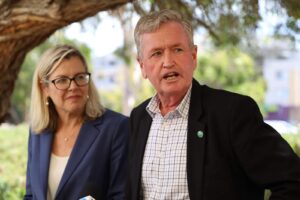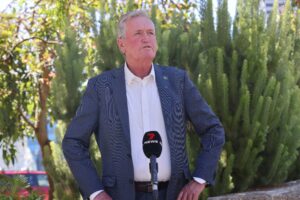The Opposition has called for a status update on the Agricultural Supply Chain initiative, which will improve vital freight networks throughout regional Western Australia.
Shadow Transport Minister Shane Love said the jointly funded scheme by the Federal and State Governments was expected to start mid-2022 but there had been no word on if construction could be delayed.
“We know there have been delays across a range of sectors due to COVID-19 so the State Government must guarantee construction on the planned upgrades to the four rail sidings at Moora, Cranbrook, Broomehill and Brookton will begin this year,” Mr Love said.
“The joint commitment of $200 million is welcome because we understand how important supply chain infrastructure is to the success of rural communities and the strength of the WA economy.
“With just over 10% of funds delivered against projects, we urge the Transport Minister to come clean on how her Government intends to fulfill its commitment, and when West Australians can expect to see these improvements underway.
“While WA Labor drags the chain to deliver these important economy-driving improvements, there is much more to be done to ensure regional WA has the modern transport network it needs.
“On the eve of a Federal Election, it is essential these projects are started to provide the community with certainty, and protect against the risk of an Albanese Labor Government shelving regional projects and putting jobs at risk.”
Mr Love also said an update on the project was required, particularly as the scheme will increase road safety in the Wheatbelt and Great Southern regions.
“This initiative will help get more grain transported on rail and allow for upgrades to other roads, greatly improving road safety in areas of great need,” Mr Love said.
“The Midwest and Goldfields-Esperance regions will also greatly benefit from these upgrades, with a reduction in congestion and improvement in travel times expected to result from the changes.”
Shadow Agriculture Minister Colin de Grussa said the Agricultural Supply Chain initiative will reduce rail freight costs for grain growers and boost the supply chain capacity for grain export.
“COVID-19 has thrown great challenges at the agriculture sector, with workforce shortages and shipping constraints impacting production,” Mr de Grussa said.
“Even a global pandemic couldn’t stop our world-leading farmers from delivering a record harvest this year and we need to ensure the freight network can keep pace with future production.
“Reducing associated export costs by upgrading the State’s road and rail network will not only help growers take advantage of the demand for their product, but also local communities.
“We look forward to work progressing quickly on this vital supply chain, to ease transport pressures on regional West Australians.”


